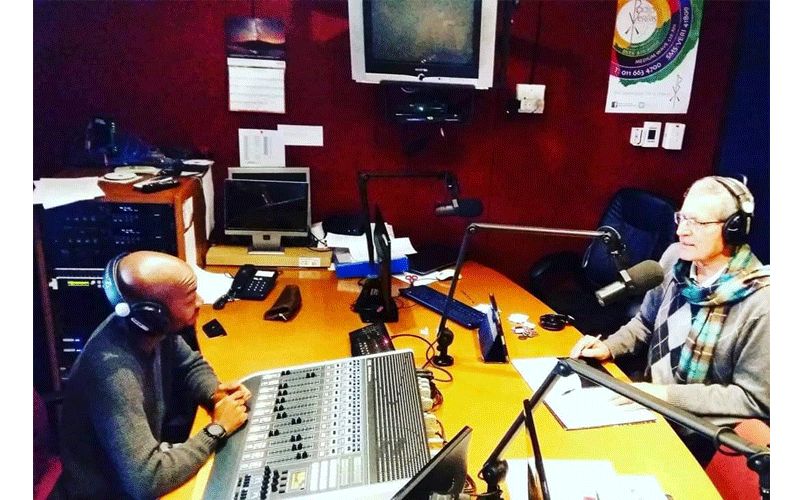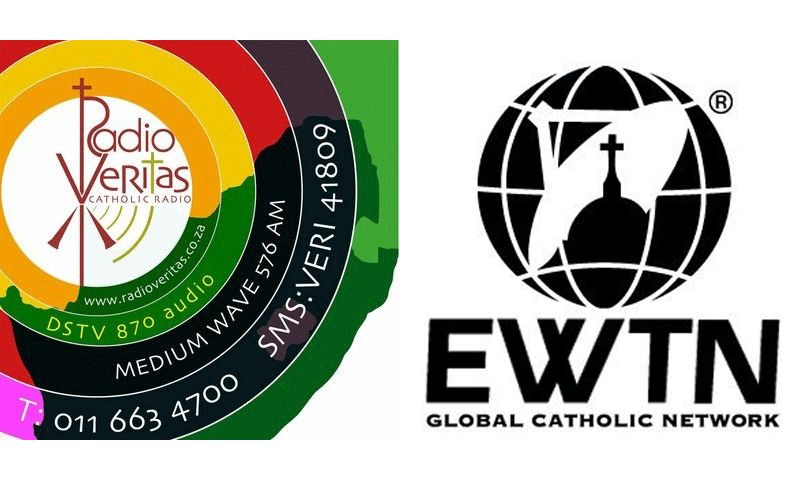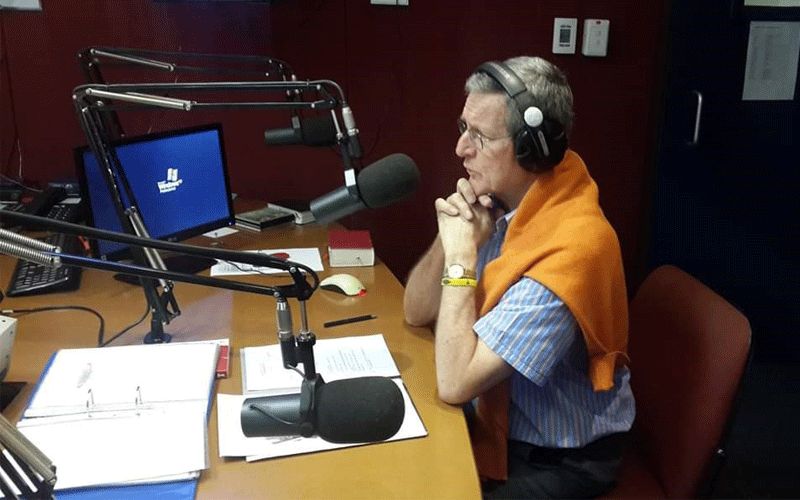
To ensure safety at the workplace once normal operations resume, the station will maintain stringent measures that have been put in place by the Government to combat the spread of the coronavirus.
“We will continue to do what we have done since the COVID-19 lockdown in March, which is observing all Government protocols,” says Orlando.
The station, she says, has been providing masks, gloves, disinfectant wipes, and sanitizers for every staff member’s office and studio, as well as at the entrances and exits of the building.
Additionally, the leadership of the station has ensured that all studio equipment is sanitized before and after use, temperature checks are conducted on everyone coming into the offices and studios, and also that physical distancing is observed.
(Story continues below)
“This was done before we had a staff member test positive and will continue in future as well,” says the radio station’s official.
The story of Radio Veritas, founded in 1998 by the Dominican Priest (OP), Fr. Emil Blaser with the blessing of the Southern African Catholic Bishops’ Conference (SACBC), is a story of hard work, according to Mrs. Orlando who has worked at the station for years.

“The Radio Veritas story is one of resilience, hard work and above all the faith and optimism of the founder Fr. Emil Blaser, who never gave up trying to get the station on the air and keeping it there over the past 21 years,” she says.
Hinting on the sources of funds for the radio station. Mrs. Orlando says, “We are supported entirely by the generosity of Catholic monthly donors and other Catholics and organizations who assist with once off donations, as well as fund raising activities held by the station. We also have a small amount of advertising.”
The radio station, one of the biggest in the Southern African country and the only one carrying Catholic content, broadcasts 24 hours a day in English, Zulu, Sesotho, and Portuguese.
The station has grown over the years as an independent media channel, airing content that is generated by its team of qualified producers and presenters.
Until the temporary suspension owing to the COVID-19 scare, the station aired local programs during the day and allocated EWTN content for overnight.
The radio’s programming is Catholic, with daily Mass and devotions such as the Rosary, and the Divine Mercy, news, views, interviews, Scripture, Catechetics, Spirituality, social teachings of the Church and programs for youth and children.

“We have also produced many series and documentaries and live streamed many South African Catholic events, such as the beatification of Blessed Benedict Daswa, episcopal installations among others,” says the station’s Creative Director.
She adds, “Before COVID-19, we streamed Sunday Mass live from a different parish each month.”
Radio is considered a special form of media especially during the isolation that comes with restrictions that have been put in place by Governments across the world to curb the spread of the coronavirus, the media practitioner observes.
“Radio is very important during this time,” she says, and adds, “The Lockdown has engendered feelings of isolation, anxiety and loss. People feel alone and radio can help to mitigate these feelings, especially when they hear others sharing their experiences of these stresses and what they are doing to raise their spirits. Radio takes away the sense of isolation.”
Catholic Radio, she says, has come strongly to fill the gaps during suspension of public worship in many countries.
“With the lockdown, people have been unable to attend Mass, and are very grateful to listen to a live Mass every day streamed on air,” Mrs. Orlando says, adding that people have found comfort in being able to send in prayer requests and interact with the community through radio air waves.
“We have had many messages of gratitude and stories of people feeling uplifted, comforted by and grateful for our Masses and programs. Radio is playing a great role in keeping people informed, inspired and united during this pandemic,” says Mrs. Orlando.
Agnes Aineah is a Kenyan journalist with a background in digital and newspaper reporting. She holds a Master of Arts in Digital Journalism from the Aga Khan University, Graduate School of Media and Communications and a Bachelor's Degree in Linguistics, Media and Communications from Kenya's Moi University. Agnes currently serves as a journalist for ACI Africa.
 In an interview with ACI Africa Tuesday, July 14, Olinda Orlando, the spokesperson of the 21-year-old Catholic radio station expressed gratitude to the radio station’s passionate followers who she said had continued to send the radio station goodwill messages.
In an interview with ACI Africa Tuesday, July 14, Olinda Orlando, the spokesperson of the 21-year-old Catholic radio station expressed gratitude to the radio station’s passionate followers who she said had continued to send the radio station goodwill messages.











